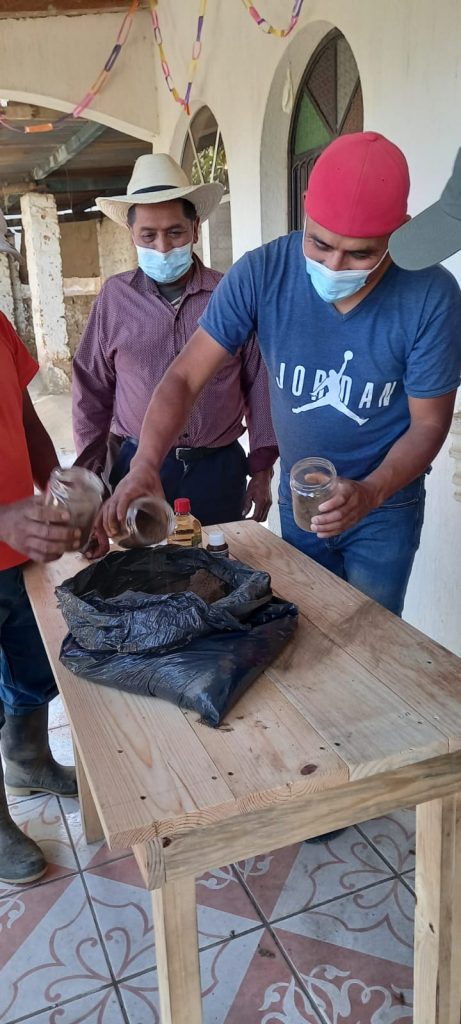An essential aspect of combating chronic childhood malnutrition is ensuring that families have year-round access to sufficient amounts of nutritious foods. We support the strengthening and expansion of agricultural capacity of our partner communities so that families are able to meet their own nutritional needs sustainably and affordably. We achieve this via a comprehensive training program that involves educating local farmers in topics such as natural and ecologically friendly pest control and fertilization, agricultural practices adapted to the stresses of climate change, proper storage of harvests, and more. We also mobilize families that participate in our programs to plant family gardens to supplement nutritional inputs, which includes trainings as well as the provision of starter plants.
A recent training session that took place covered the measurement of soil pH and its implications for crop selection and plant growth. Knowing how to measure and interpret soil pH levels is key to successful harvests. Plants’ absorption of nutrients and many chemical processes that take place in the soil, all key to healthy crop development, depend on proper pH balance. pH levels also indicate what types of crops are ideal to adapt to those particular soil conditions. For these reasons, the local farmers that participate in our programs learn how to measure the pH of their soil with simple processes and affordable tools and materials so that they can make informed decisions about their crops based on the characteristics of their soil. In this way we support our partners in building collective knowledge and community resilience, setting the foundation for successful futures.




